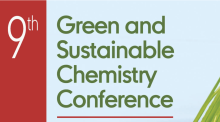Bioluminescent Lights
Lux Bio, a startup dedicated to sustainable innovation, has developed "Lume," a revolutionary bioluminescent lighting system designed to replace traditional chemiluminescent lights. This enzyme-based proprietary technology harnesses the power of enzymes to create a stable and long-lasting light source. When mixed with water, the bioluminescent formula produces light, offering a sustainable alternative to traditional chem lights. Unlike chemically synthesized alternatives, Lume is bio-manufactured in a lab using renewable resources, making it an environmentally friendly option.



